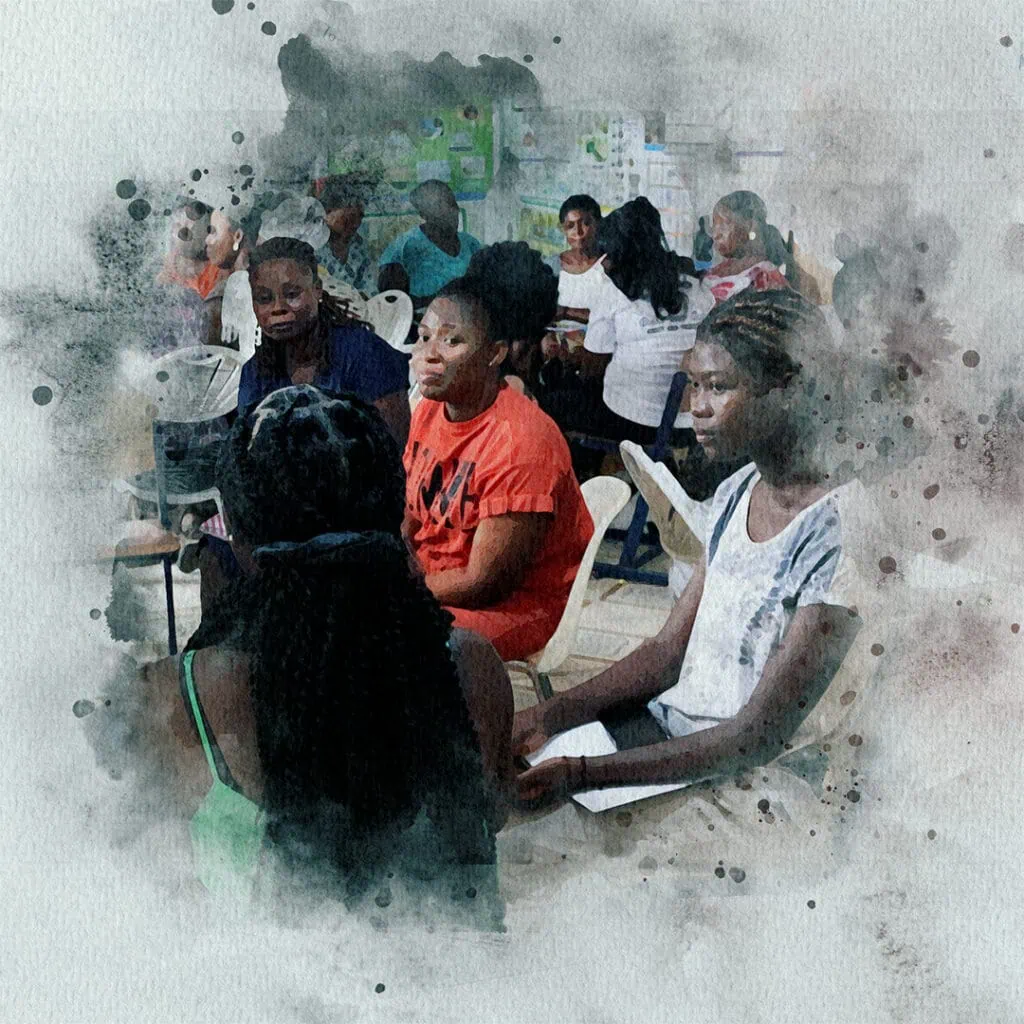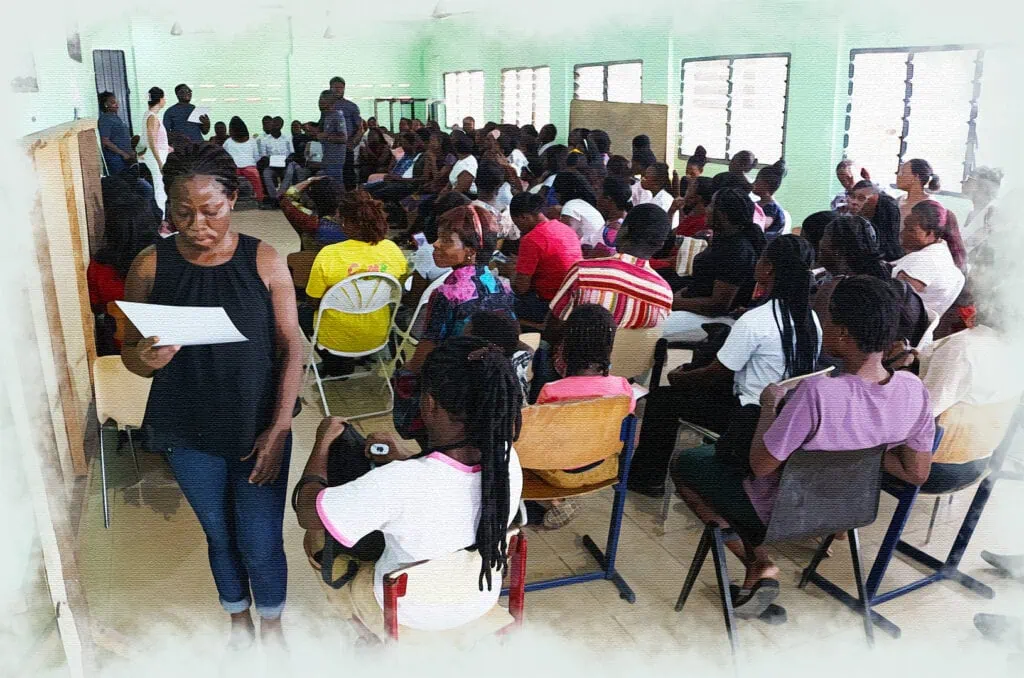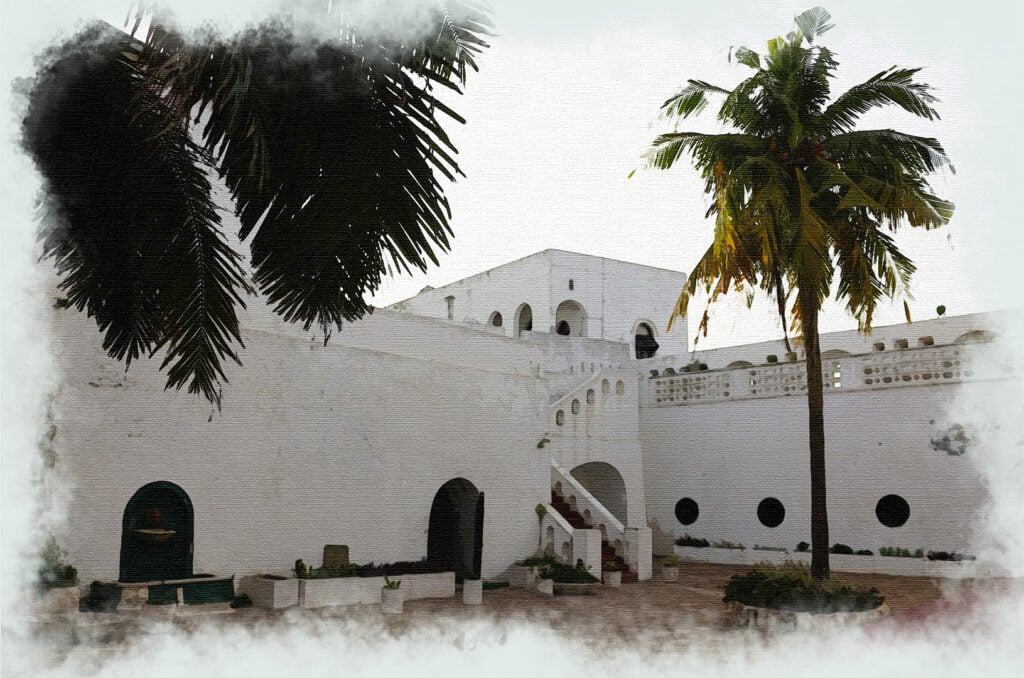Real Partnership, Real Impact: Parents International Training in Ghana 2025
If you’ve been following our work, you probably know that we care deeply about local partnerships. And if you’re new here—welcome. The story of Parents International Training in Ghana is a good example of how we try to do things: side by side with people who know their context best.
Earlier this spring, a training team lead by IPA director Eszter Salamon travelled to Accra, Ghana, to work with our local partners at Parenting Education Network Ghana (PENG). What followed was a few intense, joyful, sometimes challenging, always meaningful days of training, listening, exchanging ideas—and learning from one another.
Parents International Training in Ghana: On the Ground, Not Above It
The first thing that hits you when you land in Accra? The air. Warm, humid, full of life. The second? The energy.
Our training took place at God’s Glory School, in a part of the city where roads are rough, classrooms are busy, and the community is very much alive. We were there to deliver targeted sessions for professional educators working with young children (ages 0–6), followed by a day of training and exchange with PENG’s own staff and leadership.
There were more people than expected—always a good problem to have. We had to shuffle a few things, raise our voices over the fans, and adapt plans on the fly. But as Eszter, our director, always says: We adapt, and we make it work.

Learning With, Not At
From the beginning, it was clear this wasn’t going to be a one-way street. Our approach is always participatory. We don’t show up with ready-made answers. We offer tools, open up space for questions, and build learning moments together.
That’s why the Parents International Training in Ghana training opened with sessions on identity and communication—grounding the work in the personal experiences of each participant. Small group work encouraged everyone to take ownership, and from the first conversations, we could see how committed these professionals were to building something better for the children in their care.
One particularly rich exchange came during a discussion on child rights. A simple question—Can teachers read students’ private messages?—led to a passionate debate. Religious beliefs and cultural norms surfaced, respectfully and honestly. It wasn’t about winning an argument. It was about opening doors to new ways of thinking. And that’s exactly the point.

The Work Ahead
Among the most important themes we tackled was trauma-informed education. PENG specifically asked us to cover it, and Judit Horgas — our specialist — jumped in with her usual blend of deep knowledge and upbeat energy (yes, even in 40°C heat). We talked openly about the ongoing use of corporal punishment — not to judge, but to share tested alternatives that align with a rights-based, future-oriented approach to raising and educating children.
We also touched on communication styles, collaboration, and how cultural differences can shape everyday interactions. At one point, the group gave one of our trainers a local soul name—Kwesi, for a man born on a Sunday. It was a small moment, but a meaningful one. Mutual respect isn’t something you write into a curriculum. You feel it when it’s there.
Beyond the Clasroom
Of course, our time in Ghana wasn’t all classroom work. We always try to connect with the places we visit — and this time we were happy to visit the mausoleum of Ghana’s first president Francis Nkruma Nkwame, and humbled to stand in the dungeons of Elmina Castle, a site with a painful past. Being there reminded us why we do what we do. Because education—especially education grounded in dignity and empathy—is how we choose to do better.
We left Ghana with full hearts, a few gifts we hadn’t expected, and a renewed sense of purpose. This wasn’t a project. It was a relationship.

Parents International Training in Ghana: What Comes Next?
This training was the first in a growing partnership between Parents International and PENG Ghana. We’re building something real together—step by step, with care and mutual trust.
The official report is now out. If you’re curious about how international cooperation can be both practical and deeply human, we invite you to read the full story here. And stay tuned—because this is only the beginning.
More from Parents International
If liked the story of Parents International Training in Ghana, you’ll love to read about Uganda and Kazakhstan!
Parents International Training in Uganda – A wonderful journey of mutual discovery
Teacher training in Kazakhstan: public-private partnership for education development
